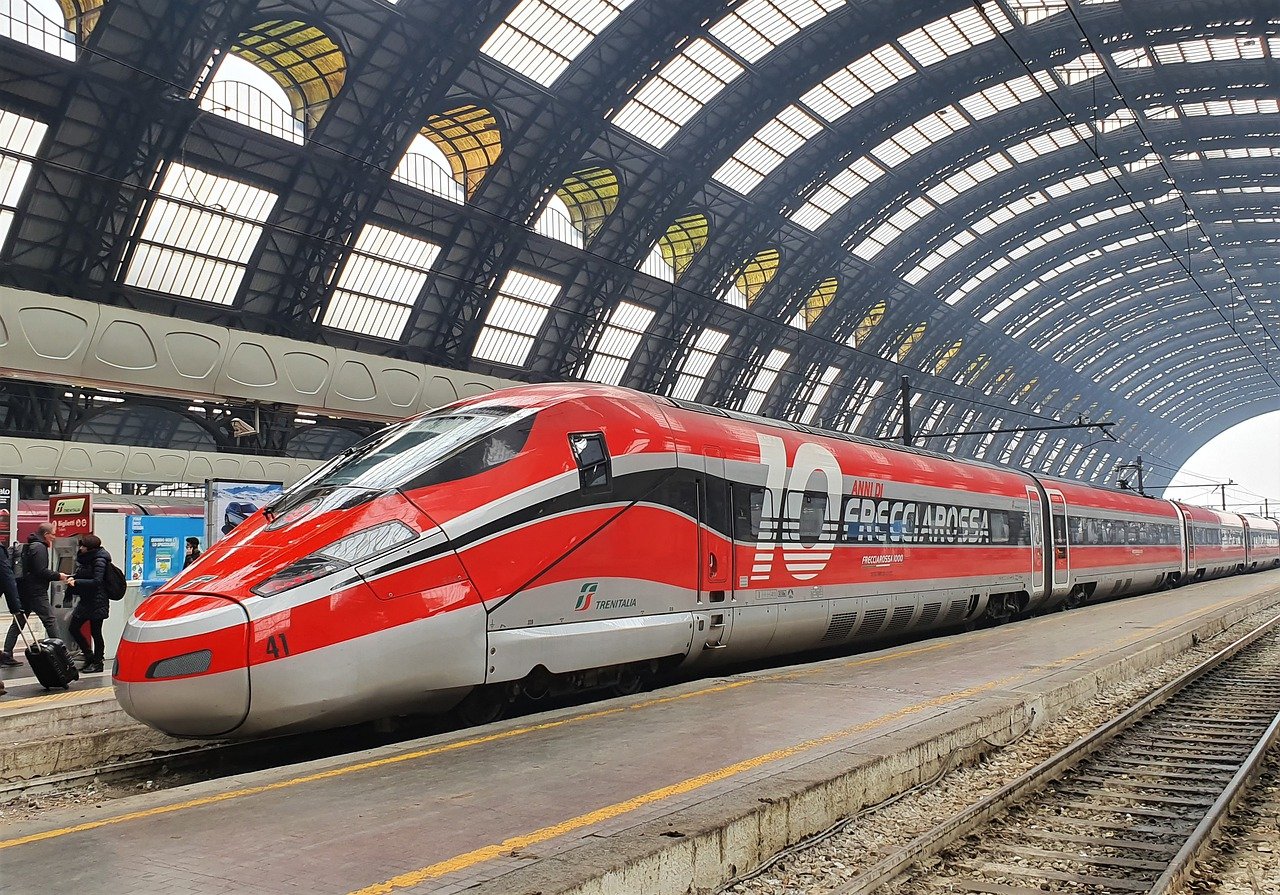One of Italy’s busiest train stations can turn into a place to meet your Italian best friend!
“Italy’s trains are places of group confession and collective absolution, which is ideal for a country that calls itself Catholic. […] We are a nation where everyone speaks to everyone else. […] Follow the conversations on this train to Naples, via Bologna, Florence, and Rome. They are public exhibitions, with their own rituals, virtuoso touches, unexpected confidences, and surprising fits of shyness. One quickly reaches a note of intimacy in Italy, and speaks about personal matters.” – Beppe Severgnini: writer, columnist for the Corriere della Sera, and (most impressively, for the generation of tech savvy social media buffs), most followed Italian journalist on X (formerly Twitter).
Italian is not a language that you can master in the classroom. This is something I found out the hard way, when I stepped onto an Italian train after having studied the language at my American university. That morning’s walk to the Roman train station was a relentless repetition of what I thought to be “essential train vocabulary” – biglietto…ticket, binario…platform, fermata…stop, and mi scusi…excuse me/sorry.
Free hugs at the Venice train station…a full vocabulary might even get you one!
My only regret about that fateful train ride? It wasn’t that I hadn’t sat in the occupant-free cabin to free myself from the “unexpected confidences,” but that while I was busy studying the Essential Vocabulary of the Italian Train Station, I neglected to study the essential vocabulary of the Italian train experience – the words you should know to be an active member in the lively conversations on Italian trains. For this blog, I went straight to the experts…THE expert, I should say. Beppe Severgnini, himself, renowned Italian journalist and author of countless books on the Italian language and culture (some, such as La Bella Figura, from which the quote above is taken, are also available in English), and self-proclaimed train enthusiast. My letter and his response were published on the site of popular Italian newspaper, Corriere della Sera, and I’ve placed the English translation below.
Expert Words of Advice: The Real Vocabulary You Need to Know
Riding the trains not only offers benefits such as this view from Taormina, Sicily.
Here’s what I wrote to the esteemed Sig. Severgnini (translated from English): What are the words that you really need when you are speaking with people on the trains? I mean phrases such as boh, the very informal dismissive interjection that you might use when someone puts you in a bit of uncomfortable situation and you don’t know what to say, or basta punto (period!) when you want to highlight that the phrase you just said was, is, and will forever be that way.
Recognizing the need to equip his country’s foreign train travelers, Beppe graciously responded with this list of necessary and basic vocabulary that you need to know when riding on the Italian trains (translated from Italian with English clarifications):
- Mah…: a general comment of the ill-fated Italian race (best described by Carlo Emilio Gadda – “Chi dice ‘mah!’ cuor contento non ha”…“Those who say ‘mah’ do not have a content heart)
- Beh…: a cautious introduction for your response when the other travelers put you in a position to talk about politics, money, personal situations, or Juventus (a divisive soccer team out of Torino…think Yankees-esque)
- Oh oh…: a marked warning if a large family with mastodon-sized luggage is approaching your cabin
- Ehi…!: An expression of disgust when your neighbor is yelling on the telephone, publically digesting his or her last meal, or deciding to squeeze an already unattractive blemish
- Eh no…!: a cry of disapproval if the above blemish-ridden neighbor extends their hands, pretending to search for their bag
- Ah…!: a relieved sigh reserved for when the same neighbor finally gathers their bag and disembarks the train.
Heard any of these expressions in your Italian class? Probably not – take careful notes, ragazzi – for like I said, living Italian is a language created by gestures, punctuated cries, and enthusiastic interjections of Italy’s finest native speakers.
Special thanks to Beppe Severgnini for contributing his train vocabulary and explanation and ideas to the English blog-reading world.
Do you have any essential vocabulary to add or a story about your experience on an Italian train?
